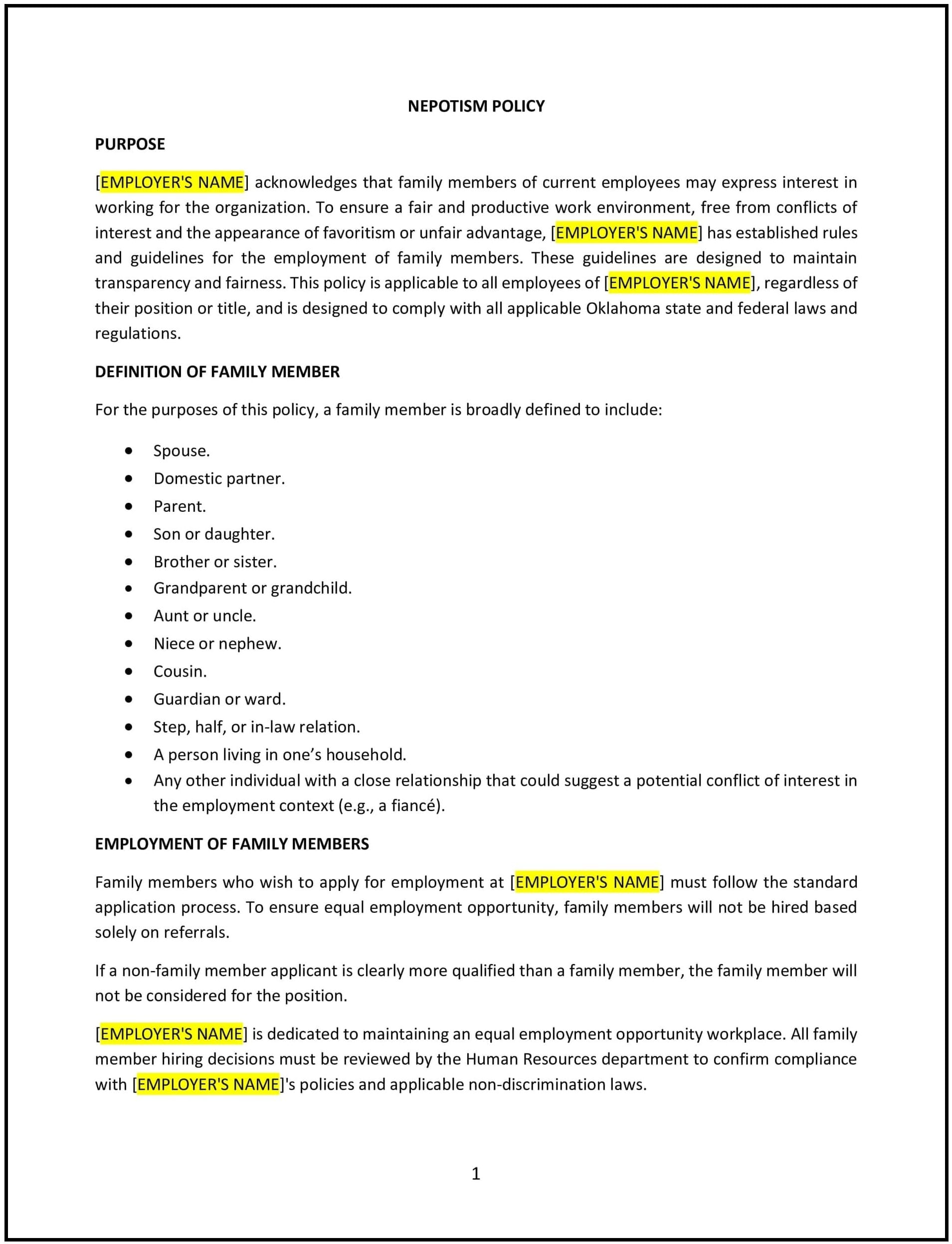Got contracts to review? While you're here for policies, let Cobrief make contract review effortless—start your free review now.

Customize this template for free
Nepotism policy (Oklahoma)
This nepotism policy is designed to help Oklahoma businesses prevent favoritism and conflicts of interest by establishing guidelines for hiring and supervising relatives. It outlines procedures for managing situations where family members work in the same organization.
By adopting this policy, businesses can promote fairness, maintain professionalism, and ensure that employment decisions are based on merit.
How to use this nepotism policy (Oklahoma)
- Define nepotism: Clearly explain what constitutes nepotism, such as hiring, promoting, or supervising relatives.
- Establish hiring guidelines: Specify whether relatives can be hired and under what conditions, such as not working in the same department or reporting to each other.
- Address conflicts of interest: Outline steps to mitigate potential conflicts, such as recusal from decision-making involving relatives.
- Set supervision rules: Clarify that relatives should not supervise each other or be in positions where one can influence the other’s employment.
- Train managers: Educate supervisors on handling situations involving relatives and ensuring fairness in employment decisions.
- Review and update: Assess the policy annually to ensure it aligns with evolving workplace dynamics and business needs.
Benefits of using this nepotism policy (Oklahoma)
This policy offers several advantages for Oklahoma businesses:
- Promotes fairness: Ensures that employment decisions are based on merit rather than personal relationships.
- Maintains professionalism: Reduces the risk of favoritism or perceived bias, fostering a professional work environment.
- Enhances trust: Demonstrates a commitment to fairness and transparency in hiring and supervision.
- Mitigates risks: Reduces the likelihood of legal disputes or reputational damage related to nepotism.
- Builds morale: Reinforces a culture where employees feel valued for their skills and contributions.
Tips for using this nepotism policy (Oklahoma)
- Communicate clearly: Ensure all employees understand the policy and its importance in maintaining fairness.
- Provide training: Educate managers on handling situations involving relatives and ensuring compliance with the policy.
- Encourage transparency: Foster a culture where employees feel comfortable reporting potential conflicts of interest.
- Monitor compliance: Regularly review the policy to ensure it is being followed and remains effective.
- Update regularly: Assess the policy annually to ensure it aligns with current workplace dynamics and business needs.